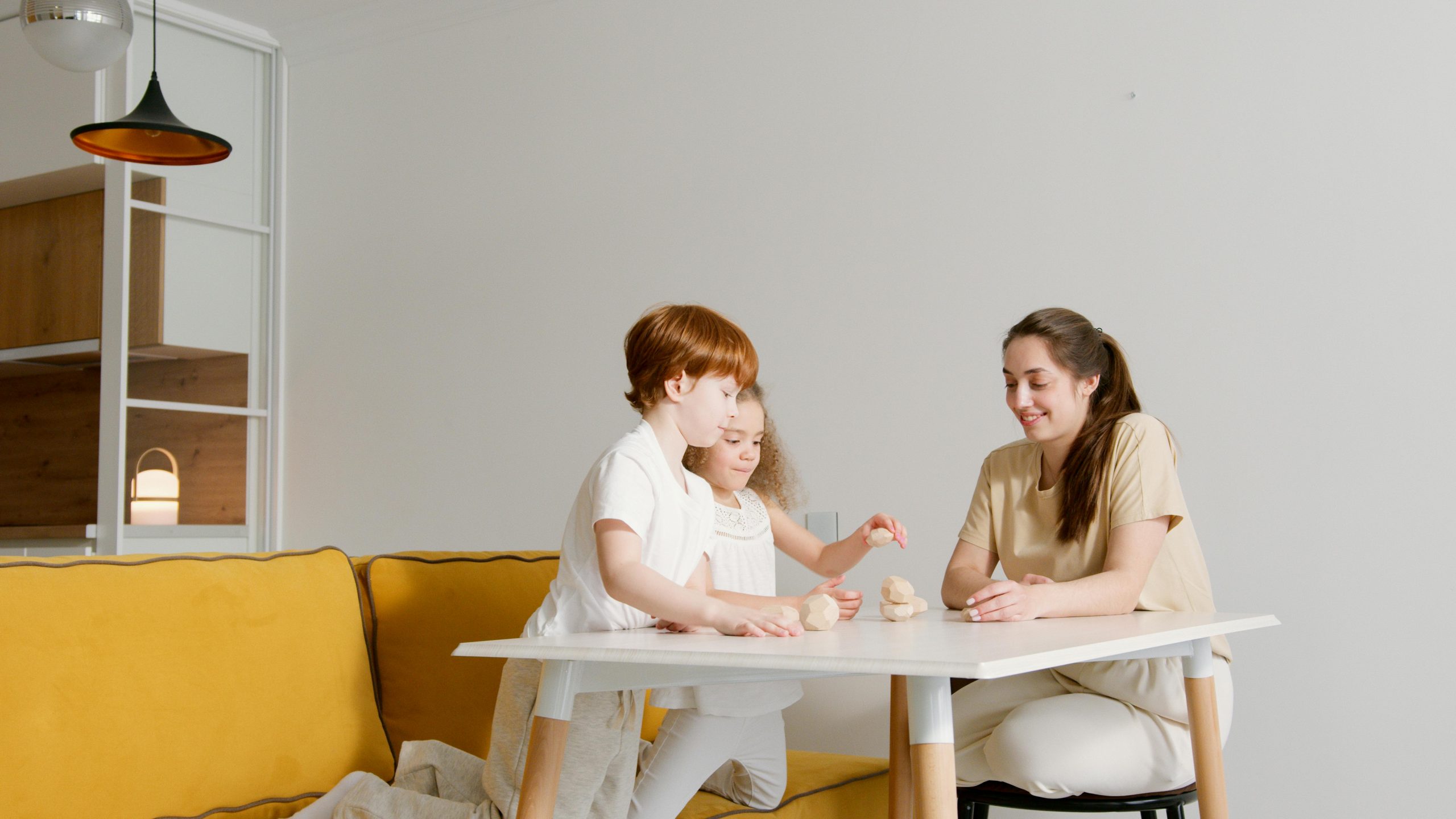Parenthood is a remarkable journey filled with love, joy, and occasional challenges. Navigating the complexities of child behavior, especially when faced with challenging behaviors, can be difficult. Behavioral Parent Training (BPT), also called Parent Coaching, emerges as a valuable tool, offering evidence-based strategies for parents to navigate these challenges effectively. BPT is an evidence-based therapeutic approach that empowers parents with practical strategies to manage and modify their child’s behavior. It operates on the foundational principle that parents play a crucial role in shaping and influencing their child’s behavior. BPT aims to enhance parenting skills, strengthen the parent-child relationship, and foster positive behavior in children.
Seeking BPT strategies does not imply that you, as a parent, lack parenting skills. In my experience, you are likely doing better than you think. However, parenting is inherently challenging, especially if you have a strong-willed child with intense emotions. Numerous researchers, such as Maughan et al. (2005), indicate that BPT is the most effective intervention for children with challenging behaviors. In this guide, I’ll delve into what BPT is, explore the scientific principles underpinning its effectiveness, and discuss how it can assist children with diverse mental health conditions.
Benefits of Behavioral Parent Training:

Strengthening the parent-child relationship has been shown to reduce the frequency of misbehaviors (Ward, Theule, & Cheung, 2016). Yet, when parenting a child with challenging behaviors, many interactions revolve around corrections and what the child should not do (e.g., “I am going to tell you one last time…,” or “Why can’t you listen?”). BPT helps foster a positive and supportive parent-child relationship by enhancing communication and understanding. It allows parents to envision the type of relationship they want, focused on connection and enjoyment.
Enhanced Parenting Skills and Reduce Parental Stress:
BPT introduces strategies that enhance positive reinforcement, creating an environment that encourages and reinforces positive behaviors in children. This approach fosters a harmonious family environment, boosting parenting confidence and efficacy while reducing parenting-related stress (Ciesielski, Loren, & Tamm, 2020).
The 5 Key Strategies of Behavioral Parent Training:
1. Positive Reinforcement:
Drawing from principles of operant conditioning, positive reinforcement involves providing rewards or positive consequences to increase the likelihood of a desired behavior being repeated. In BPT, parents learn to identify and implement positive reinforcement strategies to encourage and reinforce positive behaviors in their children. This can be achieved through verbal praise (e.g., “Good job!” or “Way to go!”), small rewards (e.g., a sticker), and privileges (e.g., extra time with electronics). Positive reinforcement should happen regularly, several times a day, to help shape and increase the behaviors we want to see more, such as cleaning after themselves or being more independent.

2. Effective Communication:
Clear and consistent communication is crucial for behavior management. Effective communication fosters understanding and cooperation between parents and children. BPT teaches parents communication techniques that enhance understanding, reduce misunderstandings, and promote positive interactions. For example, instead of asking a child to “Be good,” BPT principles suggest being more specific and stating the desired behavior, such as “Sit on this chair” or “Put your feet off the table.”
3. Setting Clear Expectations:
Children thrive on routine and predictability. Clearly defined expectations provide a framework for children to understand what is required of them. With BPT, parents learn how to establish clear and realistic expectations, creating a structured environment that supports positive behavior. This structured approach contributes to a more stable and predictable atmosphere, fostering a positive and conducive setting for a child’s development.
4. Consequence Management:
Consistent consequences for behavior, whether positive or negative, contribute to shaping future behavior. Predictable consequences help children understand the outcomes of their actions. With BPT, parents are guided in implementing appropriate consequences for behaviors, emphasizing consistency and fairness. Negative consequences, such as taking toys away or using time-out, are strategies that ideally should be used sparingly. In contrast, positive reinforcement, such as praise, should be used as often as possible to encourage desired behaviors.
5. Problem-Solving Skills:
Teaching children problem-solving skills enhances their ability to navigate challenges independently, promoting autonomy and resilience. Through BPT, parents learn to guide their children in problem-solving, fostering independence and a sense of capability. For example, when a child feels frustrated about not getting what they want, parents can support their child by using problem-solving strategies. Parents can encourage their child to list various options for coping with the frustrating situation, helping them identify the pros and cons of each course of action before supporting them in picking the best option. This empowers them to address challenges independently and effectively.

Effectiveness of BPT in Various Mental Health Conditions
Several studies have identified BPT as an effective intervention to reduce symptoms of presentations such as ADHD, ODD, and other behavioral challenges (Zarakoviti et al., 2021; Lebowitz et al., 2020). BPT is endorsed for its efficacy, enhancing parent-child relationships and fostering positive outcomes. Although not exhaustive, here is a list of mental health conditions where BPT is recommended:
Attention-Deficit/Hyperactivity Disorder (ADHD)
BPT has demonstrated effectiveness in managing Attention-Deficit/Hyperactivity Disorder (ADHD) behaviors in children. It equips parents with strategies to enhance attention, reduce impulsivity, and promote self-control, contributing to improved behavior and overall well-being in children with ADHD.
Disruptive Behavior Disorders and Oppositional Defiant Disorder (ODD)
BPT is widely recommended for disruptive behavior disorders, including oppositional defiant disorder. It concentrates on improving parent-child communication, establishing positive reinforcement, setting boundaries, and implementing consistent consequences.
BPT strategies, particularly in the form of evidence-based programs such as Supportive Parenting for Anxious Childhood Emotions, are effective in addressing anxiety disorders in children by creating a supportive environment, reducing anxiety-provoking behaviors and accommodations, and reinforcing adaptive coping skills. Those strategies are also ideal for parents who want to learn skills and tools to help their child overcome anxiety, OCD, or related problems.
BPT interventions have been successful in addressing bedtime resistance, sleep difficulties, and nighttime waking in young children. It establishes consistent bedtime routines, reinforces positive sleep habits, and addresses sleep-related behavior problems.
BPT has been utilized to address challenges related to toilet training in young children. It involves parents creating a structured and positive toilet training environment, reinforcing successful attempts, and addressing any fears or concerns.
Conclusion: Nurturing Positive Parenting Through BPT
Behavioral Parent Training emerges as a powerful tool grounded in scientific principles, empowering parents to navigate the intricate landscape of child behavior. By understanding and applying these evidence-based strategies, parents can foster positive behaviors, strengthen parent-child bonds, and create a nurturing environment for their children to thrive. Embracing BPT isn’t just a step toward addressing challenging behaviors; it’s a journey to lay the foundation for lifelong positive relationships within the family.
Support Behavioral Parent Training Support in Arlington, MA
Seek a qualified therapist experienced in Behavioral Parent Training (BPT) for a consultation. Through BPT and collaborative efforts, you can empower your child to thrive and reach their full potential. The Bain Health and Wellness Center offers comprehensive and compassionate parent support and children’s therapy in Arlington, MA. Our therapists have extensive experience utilizing evidence-based treatments like BPT to promote positive outcomes.
- Reach out today to begin your free 20-minute consultation.
- Speak with an experienced therapist.
Other Therapy Services Offered at The Bain Health and Wellness Center in Arlington, MA, and Throughout Massachusetts
Do you believe you could benefit from learning behavioral parent training strategies? If so, contact The Bain Health and Wellness Center for a consultation. Our therapists have experience identifying and working with parents, children, teens, and young adults. At the Bain Health and Wellness Center (BainHWC), we work with parents, and we also offer in-person and virtual therapy for children and teens with ADHD, anxiety, autism, depression, trauma, OCD, and more. All our therapists at BainHWC are well-versed in evidence-based treatment. We bring years of experience. We’d love to discuss your needs and offer guidance on the next steps. Get in touch today!
Reference:
Ciesielski, H. A., Loren, R. E. A., & Tamm, L. (2020). Behavioral Parent Training for ADHD Reduces Situational Severity of Child Noncompliance and Related Parental Stress. Journal of Attention Disorders, 24(5), 758-767. https://doi.org/10.1177/1087054719843181
Lebowitz, E. R., Marin, C., Martino, A., Shimshoni, Y., & Silverman, W. K. (2020). Parent-Based Treatment as Efficacious as Cognitive-Behavioral Therapy for Childhood Anxiety: A Randomized Noninferiority Study of Supportive Parenting for Anxious Childhood Emotions. Journal of the American Academy of Child and Adolescent Psychiatry, 59(3), 362–372. https://doi.org/10.1016/j.jaac.2019.02.014
Maughan, D., Christiansen, E., Jenson, W., Olympia, D., & Clark, E. (2005) Behavioral Parent Training as a Treatment for Externalizing Behaviors and Disruptive Behavior Disorders: A Meta-Analysis, School Psychology Review, 34:3, 267-286, DOI: 10.1080/02796015.2005.12086287
Ward, M. A., Theule, J., & Cheung, K. (2016). Parent-child interaction therapy for child disruptive behavior disorders: A meta-analysis. Child & Youth Care Forum, 45(5), 675–690. https://doi.org/10.1007/s10566-016-9350-5
Zarakoviti, E., Shafran, R., Papadimitriou, D., & Bennett, S. D. (2021). The Efficacy of Parent Training Interventions for Disruptive Behavior Disorders in Treating Untargeted Comorbid Internalizing Symptoms in Children and Adolescents: A Systematic Review. Clinical child and family psychology review, 24(3), 542–552. https://doi.org/10.1007/s10567-021-00349-1






